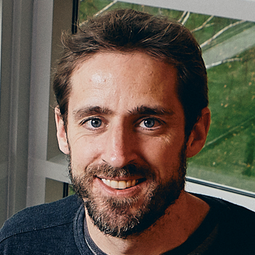
This summer’s unprecedented heat waves, flooding, wildfires, and extreme weather events have devastated communities, with widespread ripple effects on physical and mental health as people cope and adjust to a new normal. These effects of our changing climate are disproportionately impacting younger generations around the world, especially those in Generation Z (born 1995-2012). Eco-anxiety, “a chronic fear of environmental doom,” as defined by the American Psychological Association, is increasingly affecting younger generations in their daily lives, including at school and work. It can lead to heightened feelings of hopelessness, despair, and depression, BJPsych Bulletin reports, with the subsequent decrease in performance and engagement spilling into the workplace.
According to a recent study published in The Lancet Planetary Health, 45 percent of Gen Z respondents reported that their feelings about climate change negatively impact their daily lives, including work and sleep. For example, a 2023 report from The Conference Board found that eco-anxiety has resulted in 22 percent of respondents feeling demotivated at work and 17 percent feeling unfocused in their work. These feelings about climate change not only impact next-generation employees at work but also influence where they work. Younger employees are drawn to purpose-driven work and organizations with similar values to their own. In a survey of 10,000 young people across 10 countries, 55 percent of Gen Z respondents research an organization’s environmental impact and policies before accepting a job offer, and around 17 percent have changed their job or sector due to climate concerns. Addressing the mental health fallout of climate change requires a public health, community-oriented approach; the workplace is one such pivotal community. Employers must not only consider the impact of climate change on their businesses but also on the mental health, engagement, and performance of their next-gen employees.
Milken Institute Public Health brought together a diverse employer group this summer as part of our newly established Milken Institute Employer Action Exchange to discuss the role of employers in tackling the mental health impacts of climate change on the next generation of employees. This discussion included a fireside chat with Lynn Goldman, MD, dean of the George Washington University Milken Institute School of Public Health and former assistant administrator for toxic substances at the US Environmental Protection Agency, exploring employer strategies to foster a more emotionally resilient workforce and have a positive environmental impact.
Dean Goldman emphasized how eco-anxiety is a normal, adaptive response to climate change, explaining, “The reason humans have survived this long is because of emotional responses to threats.” She encouraged attendees to leverage these emotions to spur action and innovation. Addressing and harnessing this eco-anxiety to drive social change is critical to next-generation employee recruitment, engagement, performance, and retention. The fireside chat and discussion detailed actions for employers at varying stages of engagement and readiness, whether implementing a full climate strategy to starting with transparent communication. Employers have an incredible opportunity to act through modeling and communicating about their climate actions, fostering emotional resilience, providing mental health support, and investing in the future of their communities.
Action 1: Modeling and Communicating Climate Action
A starting point for employers interested in tackling the impact of climate change in the workplace is focusing on communication and awareness. According to Deloitte’s 2023 Global Gen Z and Millennial Survey which surveyed over 22,000 Gen Z individuals and millennials across 44 countries, one of the most requested actions is for employers to educate employees about climate change and share how their organization is making strides toward sustainability. Employees often want to live and work more sustainably but aren’t sure where to start. Providing educational materials and encouraging employees to make more eco-friendly choices in and out of the workplace can help employees make an impact while fostering a sense of community. According to articles in FOSH and Metrobi, reducing or banning single-use plastics in the workplace, providing subsidies to incentivize the use of public transportation for commuting, and educating employees on why these changes matter are examples that were highlighted during the event. Adjusting office thermostats to be eco-friendly or providing healthier, plant-based snack options in the office are changes employees can adopt at home as well. By modeling and implementing workplace changes, employers create a framework for employees to follow at home. Equipping employees with the tools they need to live more sustainably can mitigate the feelings of helplessness and fear associated with eco-anxiety, boosting motivation and performance among employees. This investment in their workforce signals a shared commitment to the environment, which is key for next-generation employees, and shows that employers care about employee whole-person health, including physical, mental, and financial health.
Action 2: Fostering Emotional Resiliency and Providing Mental Health Support
A recurring theme throughout the discussion was the importance of fostering emotional resiliency, balanced with support from employers. Climate change-induced weather events can upend employees’ lives, destroying their homes, devastating their communities, and forcing them to rebuild, which requires time, money, and resources employees don’t always have. Even without a major disaster, employees are still feeling the effects of climate change. They are commuting, working, and caring for loved ones at home during extreme heat waves, flooding, and periods of air quality concerns, all of which impact their mental health. According to The National Safety Council, employers lose $15,000 a year in lost productivity, health-care costs, and turnover for each employee experiencing mental health concerns. The July issue of Health Affairs: Health Equity Insider emphasized the “inextricable link” between climate change and health equity. As evidenced in a PNAS Nexus article, vulnerable or marginalized populations are at greater risk of suffering adverse mental and physical health impacts from climate change. These populations, therefore, need additional or specialized support from their employers.
Employers can promote emotional resiliency amongst their employees by acknowledging the impact climate change is having and meeting them where they are. Climate Mental Health Network’s Climate Emotion Wheel can be a useful tool for employers to anchor employee-resource group (ERG) conversations or for managers to better understand their supervisees and communicate about these issues in the workplace. Adapting work-from-home policies to be more flexible in the event of climate-related concerns, establishing climate-focused ERGs or next-generation advisory groups where employees can discuss these topics, and communicating the actions being taken to create a safer, more climate-resilient workplace can all help employees cope with eco-anxiety.
While fostering resiliency is important, it is also critical to recognize that constantly needing to be resilient takes its own toll on mental health. Employers can support their employees by ensuring they have access to comprehensive mental health services, and not just in the wake of an emergency. Mentorship programs are another great way to not only support employees’ mental health and professional development but also to promote connectedness between employees and the organization. This sense of connection can have a tremendous impact on engagement and retention rates, particularly if employees feel like their employer is invested in their growth and well-being.
Action 3: Investing in the Future of Our Communities
Next-generation employees' purpose-driven mindset significantly influences where they work, how they work, and the level of employer investment they expect in causes they care about, including the environment. Event attendees shared how employer-organized, climate-focused volunteer days—where employees can work with climate-oriented organizations or spend time together greening local communities—can benefit both employers and employees. As reported by Forbes, there is ample evidence touting the benefits of organization-led volunteering for retention, engagement, motivation, and brand image. According to the Mayo Clinic, volunteering keeps employees physically and mentally active, fosters meaningful relationships with colleagues and the local community, and provides a sense of purpose and connection they may otherwise lack. These benefits extend to both the workplace as well as employees’ personal lives.
When employers invest in local communities—and by extension, their employees—it can help next-generation employees feel valued while giving colleagues a chance to spend valuable time together outside the workplace. Employees can make a tangible impact on an issue that is important to them and learn about environmentally friendly practices, while employers can demonstrate their understanding and support for their employees’ concerns. The result is a shared benefit for employers, employees, and the broader community.
These recommendations offer a path for employers at many stages of action to boost self-efficacy, empowerment, and connection within their organization, particularly for next-generation employees. By embracing mission-driven work, integrating sustainability as standard business practice, and prioritizing mental health support in the context of climate change, employers can significantly enhance performance and retention. Adapting to the next generation’s expectations is essential for recruiting and retaining a dynamic, engaged workforce. Employers must not only respond to climate events and mitigate the short-term impacts of climate change but also prepare employees to weather the storm through long-term investments in mental well-being, community, and resilience. To thrive in this evolving landscape, employers must adapt to be climate-conscious and supportive of their employees' well-being, ensuring a resilient and committed workforce for the future. Through The Employer Action Exchange, Milken Institute Public Health looks forward to connecting with and supporting employers at all stages of action to support next-gen mental health and build a more resilient future.






















